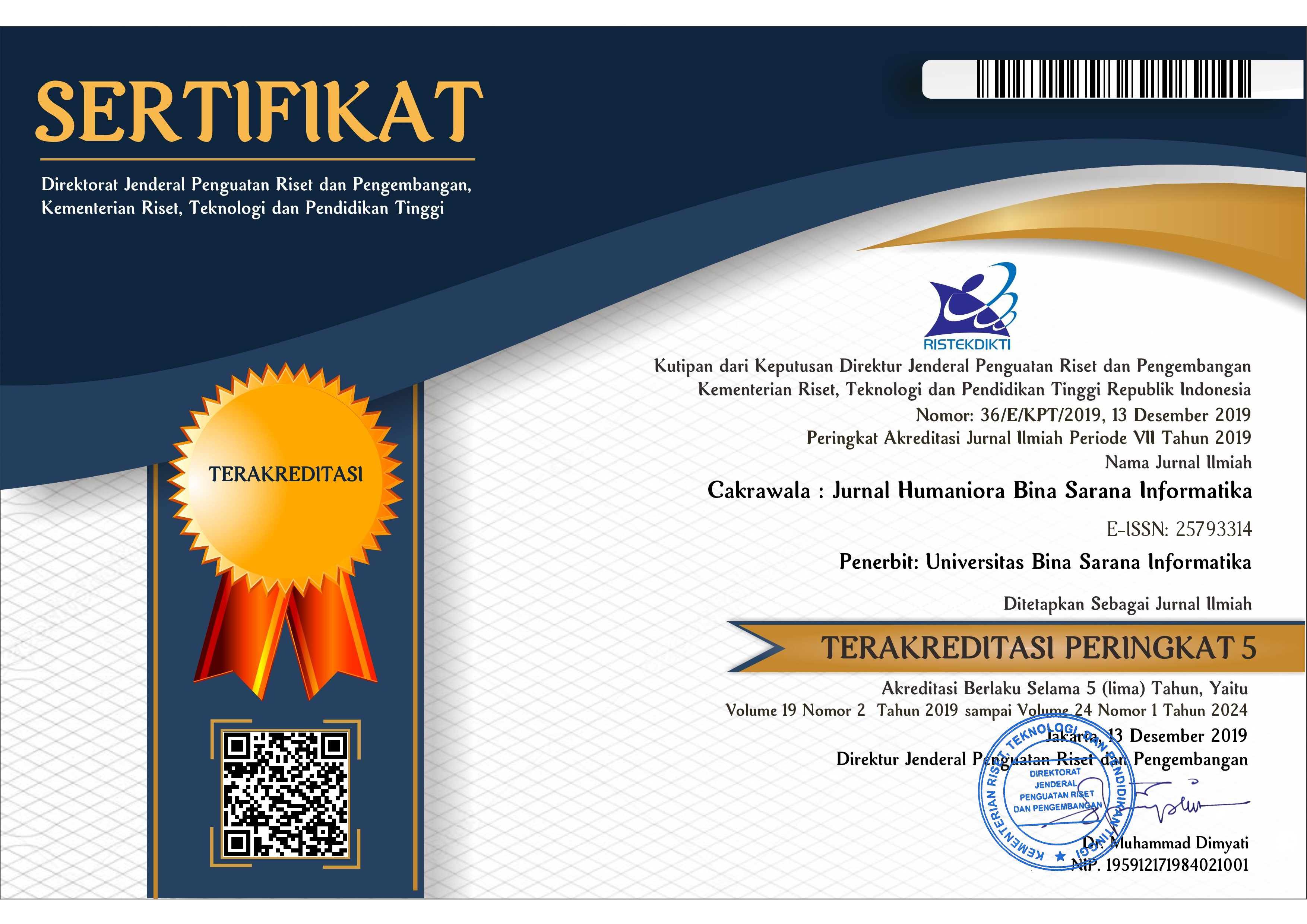Fenomena Fatherless dari Sudut Pandang Wellbeing Remaja (Sebuah Studi Fenomenologi)
Abstract
The emergence of the fatherless phenomenon is often due to a parenting paradigm that is influenced by patriarchal culture. Where it is said that the process of taking care of children is borne by the mother and fathers should not take care of children or be involved in parenting. The impact of fatherless will be different at each stage of the age of the child left behind, especially closely related to subjective well-being and especially in adolescents who are in a crucial period in their developmental stages. This study aims to find out how the description of subjective well-being in fatherless adolescents? The research uses qualitative research methods using semi-structured interviews and observation. Informants in this study are adolescents aged 15-18 years with the characteristics of adolescents from fatherless families. The results of this study state that the description of subjective well-being in fatherless adolescents is known in the affective component characterized by the presence of various kinds of negative and positive emotions related to the fatherless experiences they experience. In addition, the cognitive life evaluation component is characterized by global satisfaction and domain-specific satisfaction. The involvement of the role of father figures in the family is able to help assist adolescents in their crucial periods, especially in the affective aspect in the form of positive emotions and life satisfaction.
Full Text:
PDFReferences
Alfasma, W., Santi, D. E., & Kusumandari, R. (2023). Loneliness dan perilaku agresi pada remaja fatherless. Sukma: Jurnal Penelitian Psikologi, 3(01), 40–50.
Asfari, H. (2022). Peran yang Terlupakan: Pengasuhan Ayah pada Keluarga dengan Anak Berkebutuhan Khusus di Indonesia. Psyche 165 Journal, 1–6. https://doi.org/10.35134/jpsy165.v15i1.140
Fajarrini, A., & Umam, A. (2023). Dampak Fatherless Terhadap Karakter Anak Dalam Pandangan Islam. ABATA Jurnal Pendidikan Islam Anak Usia Dini, 3(1), 20–28. https://doi.org/10.32665/abata.v2i1.1425
Huberman, M., & Miles, M. B. (2002). The Qualitative Data Analysis. California: Sage Publication
Junaidi, Mustafa, K., Hartono, R., & Khoirunnisa, S. (2023). Kecemasan terhadap Pernikahan pada Perempuan Dewasa Awal yang Mengalami Fatherless. Journal on Education, 05(04).
Karni, A. (2018). Subjective Well-being Pada Lansia. Syiar, 18(2).
Kim-Prieto, C., Diener, E., Tamir, M., Scollon, C., & Diener, M. (2005). Integrating The Diverse Definitions Of Happiness: A Time-Sequential Framework Of Subjective Well-Being. Journal of happiness Studies, 6, 261-300.
Maryam, M. S., & Mulyaniapi, T. (2022). Gambaran Kemampuan Self-Control pada Anak yang Diduga Mengalami Pegasuhan Fatherless. PIAUDKU: Journal of Islamic Early Childhood Education, 1(1). https://doi.org/10.54801
Moleong, L. (2004). Metodelogi penelitian. Bandung: Penerbit Remaja Rosdakarya, 3(01).
Nihayati, D. A. (2023). Upaya Pemenuhan Hak Anak Melalui Pencegahan Fatherless. EQUALITA: Jurnal Studi Gender Dan Anak, 5(1). https://www.syekhnurjati.ac.id/jurnal/index.php/equalita/index
Oberle, E., Schonert-Reichl, K. A., & Zumbo, B. D. (2011). Life Satisfaction In Early Adolescence: Personal, Neighborhood, School, Family, And Peer Influences. Journal of youth and adolescence, 40, 889-901.
Pebriana, P. H. (2017). Analisis Penggunaan Gadget terhadap Kemampuan Interaksi Sosial pada Anak Usia Dini. Jurnal Obsesi : Jurnal Pendidikan Anak Usia Dini, 1(1), 1. https://doi.org/10.31004/obsesi.v1i1.26
Putro, K. Z., Amri, M. A., Wulandari, N., & Kurniawan, D. (2020). Pola Interaksi Anak dan Orangtua Selama Kebijakan Pembelajaran di Rumah. Fitrah: Journal of Islamic Education, 1(1). http://jurnal.staisumatera-medan.ac.id/index.php/fitrah
Rahayu, P., & Saroinsong, W. P. (2023). Hubungan Fatherless Terhadap Subjective Well-Being Anak Usia Dini di Wilayah Industri Jawa Timur. PAUD Teratai, 12(1), 23027363. https://ejournal.unesa.ac.id/index.php/paud-teratai/index
Santrock, J. W. (2007). Life-Span Development. Newyork: McGraw Hill.
Sugiyono. (2014). Memahami Penelitian Kualitatif (10th ed.). Bandung: Alfabeta.
Yuniardi, M. S. (2012). Penerimaan Remaja Laki–Laki Dengan Perilaku Antisosial Terhadap Peran Ayahnya Di Dalam Keluarga. Research Report.
DOI: https://doi.org/10.31294/jc.v23i2.16983
ISSN: 2579-3314


Dipublikasikan oleh LPPM Universitas Bina Sarana Informatika
Jl. Kramat Raya No.98, Kwitang, Kec. Senen, Kota Jakarta Pusat, DKI Jakarta 10450

This work is licensed under a Creative Commons Attribution-ShareAlike 4.0 International License









